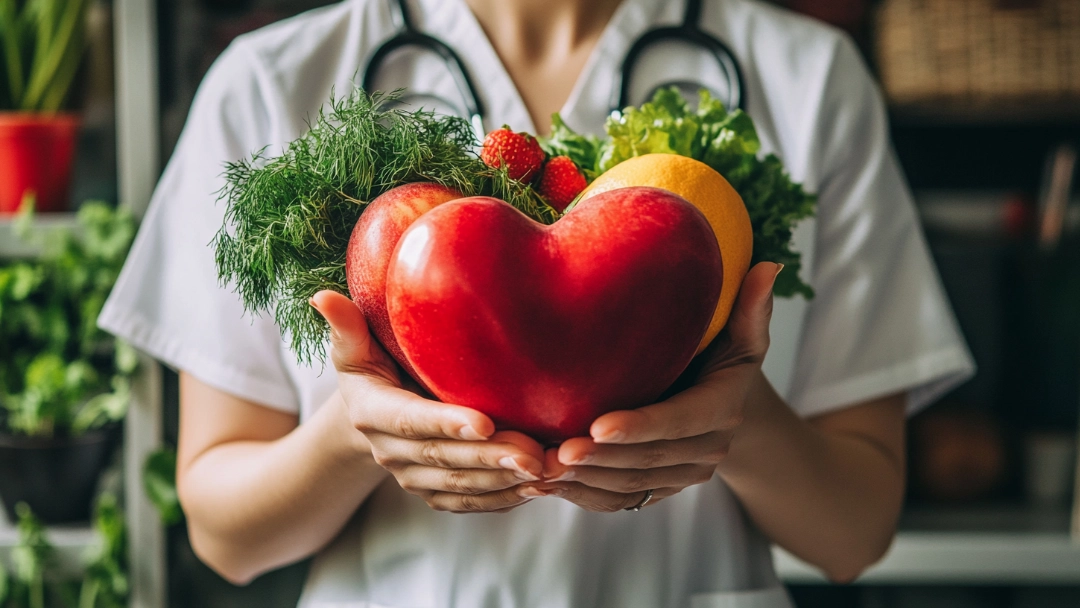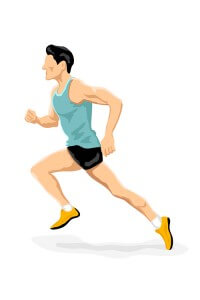
How a Vegan Diet Can Help Reverse Heart Disease
Imagine. A vegan diet can help reverse heart disease. Have you heard a doctor say that? My father would never have believed it. And yet it was his change in diet and lifestyle that saved him. Heart disease remains a leading cause of death worldwide. But there’s good news: recent research highlights the potential of vegan diets in reversing the effects of heart disease.
A focus on plant-based foods can significantly improve heart health and reduce cardiovascular risks, according to a growing number of studies. Quite frankly, I’ve heard more and more doctors agree that a vegan diet, or at least mostly plant-based, can help reverse heart disease.
When I was a teenager, my father had a massive heart attack. As he gained strength in recovery, he continued the regimen that his cardiologist had put him on, recommending that he eat more vegetables, fruit, and fiber-rich grains, and cut back on meat, greasy foods and fats. He sat there one morning at the breakfast table, staring at the bowl of shredded wheat my mother had put before him. He scowled at me. “Yah mother! She has me eating cardboard!” he scoffed in his thick Rhode Island accent. And yet he did not give up on the new diet prescribed to him. I saw him get his energy back and his humor, too.
The Science Behind Vegan Diets and Heart Health
These days, medical students are rarely taught nutrition, agrees Plant Docs, a new non-profit group that shares the power of plant-based nutrition to prevent, improve, and even reverse heart disease, type 2 diabetes, obesity, and autoimmune diseases.
Despite the lack of education around diet and health in the medical industry, more and more reports are showing the correlation between a vegan diet and a reversal of heart disease, among other things. As a result, more doctors, like Plant Docs, are educating themselves and getting certified in plant-based nutrition.
The following is a list of recent studies that link plant-based choices with heart health:
- Cholesterol and blood pressure: A 2021 study in the Journal of the American Heart Association found that plant-based diets significantly lower LDL cholesterol and blood pressure, reducing the risk of coronary artery disease.
- Inflammation and heart disease: A 2023 study published in MDPI showed that a vegan diet can reduce markers of inflammation, which is a key factor in heart disease development.
- Overall cardiovascular health: a 2023 report from Stanford Medicine revealed that a vegan diet improves cardiovascular health in as little as eight weeks.
Perhaps one of the most notable if not the top report comes from the Physicians Committee for Responsible Medicine. They wrote:
Groundbreaking research shows that a plant-based diet doesn’t just prevent heart disease but that it can manage and sometimes even reverse it. [Read More]
Key Benefits of Going Plant-based
- Improved Lipid Profiles: Vegan diets are free of dietary cholesterol and low in saturated fats, leading to improved lipid profiles. Studies show these diets can reduce LDL cholesterol by up to 30 percent.
- Enhanced Blood Vessel Health: A 2023 study in MPDI found that the antioxidants and polyphenols in plant foods improve endothelial function, crucial for maintaining healthy blood vessels.
- Reduced Risk of Atherosclerosis: Recent evidence suggests that plant-based diets can help prevent and even reverse atherosclerosis, a condition characterized by plaque build-up in the arteries.
Notable studies with whole food, plant-based diets
- The BROAD Study (2020): This study demonstrated that participants on a whole-food, plant-based diet showed significant improvements in heart disease markers and overall cardiovascular health.
- The Adventist Health Study-2 (2022): This large-scale study found that individuals following a vegan diet had a 75% lower risk of developing high blood pressure compared to omnivores.
Practical Tips for Transitioning to a Vegan Diet
Making changes in our lives never seems to be easy. Yet when you shift your viewpoint, transitioning to a vegan diet will become a smooth ride for you. Many patients, when they get a doctor's order to make changes, they think in terms of having to give up things they love. I invite you to consider this: When you consider your health and quality of life, it's not about giving up the foods you love, but loving the foods that give you life. So relax, allow yourself to explore the new without worrying about what you may be missing. And I suspect you may not miss anything. Start with the list here below:
- Gradual Changes: Start by incorporating more plant-based meals and reduce animal products over time.
- Focus on Diversity: Include a variety of fruits, vegetables, grains, and legumes to ensure a balanced nutrient intake.
- Seek Guidance: Consult with nutritionists familiar with vegan diets to maintain proper nutrition.
- Stay Informed: Keep up with the latest research and resources to support a healthy transition.
- Stay Positive: Seek the company of those who emotionally support your new choices.
A Vegan Path Towards Better Long-term Health
A vegan diet offers a powerful approach to reversing heart disease by reducing key risk factors and promoting overall cardiovascular health. With continued research and endorsements from experts in the field, adopting a plant-based lifestyle remains a transformative step towards improved heart health and longevity.
References
- Journal of the American Heart Association (2021).
- The Vegan Society (2023).
- BROAD Study (2020).
- Adventist Health Study-2 (2022).
By emphasizing whole, plant-based foods, individuals can take proactive steps to enhance heart health and potentially reverse heart disease.
+++++++++++++++++++++++++++++++++++++
Struggling with weight? Looking for a supportive, professional telehealth team you can trust? Check out the Body Miracle Membership today!




